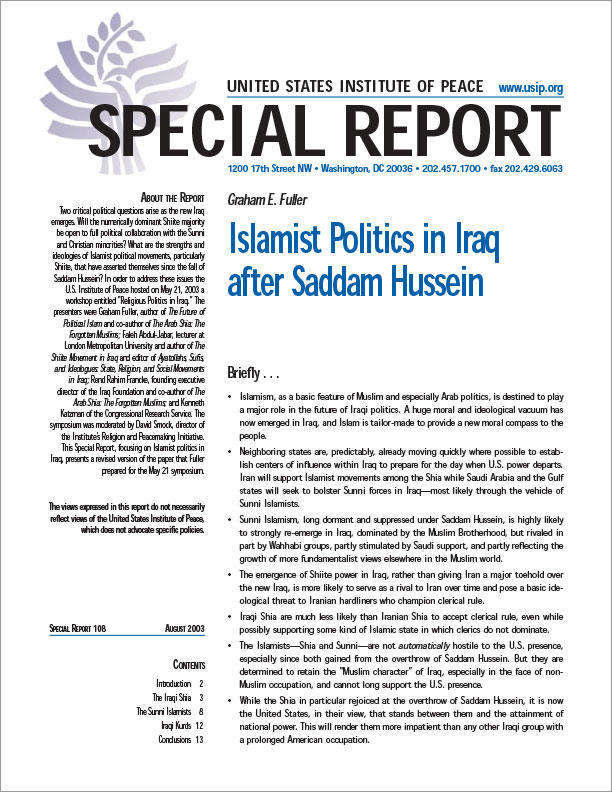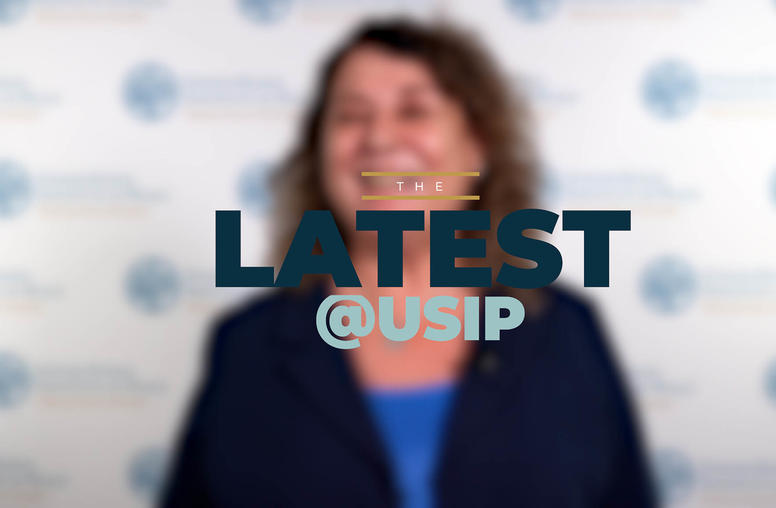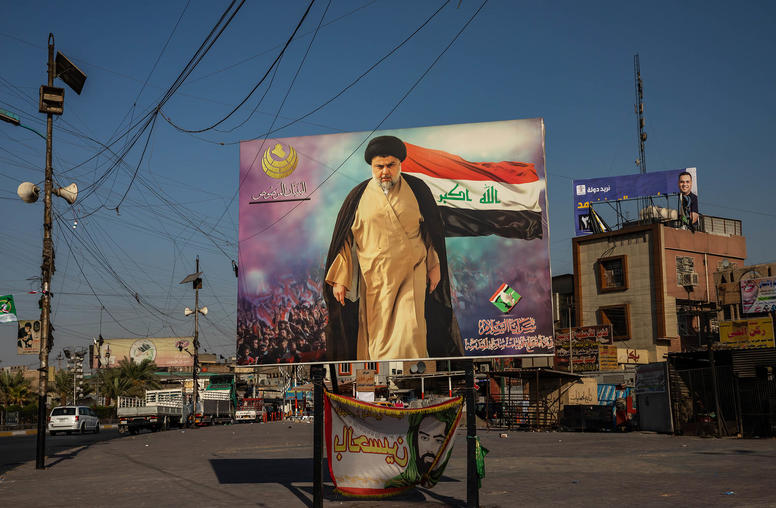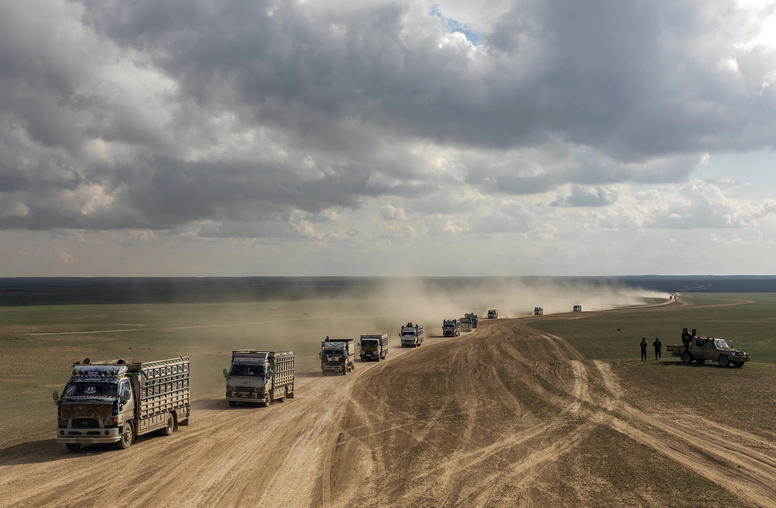Which Two Groups Continue to Clash in Iraw Even After the Overthrow Od Saddam Hussein
Two critical political questions arise as the new Iraq emerges. Will the numerically dominant Shiite majority be open to full political collaboration with the Sunni and Christian minorities? What are the strengths and ideologies of Islamist political movements, particularly Shiite, that have asserted themselves since the fall of Saddam Hussein?

Summary
- Islamism, as a basic feature of Muslim and especially Arab politics, is destined to play a major role in the future of Iraqi politics. A huge moral and ideological vacuum has now emerged in Iraq, and Islam is tailor-made to provide a new moral compass to the people.
- Neighboring states are, predictably, already moving quickly where possible to establish centers of influence within Iraq to prepare for the day when U.S. power departs. Iran will support Islamist movements among the Shia while Saudi Arabia and the Gulf states will seek to bolster Sunni forces in Iraq—most likely through the vehicle of Sunni Islamists.
- Sunni Islamism, long dormant and suppressed under Saddam Hussein, is highly likely to strongly re-emerge in Iraq, dominated by the Muslim Brotherhood, but rivaled in part by Wahhabi groups, partly stimulated by Saudi support, and partly reflecting the growth of more fundamentalist views elsewhere in the Muslim world.
- The emergence of Shiite power in Iraq, rather than giving Iran a major toehold over the new Iraq, is more likely to serve as a rival to Iran over time and pose a basic ideological threat to Iranian hardliners who champion clerical rule.
- Iraqi Shia are much less likely than Iranian Shia to accept clerical rule, even while possibly supporting some kind of Islamic state in which clerics do not dominate.
- The Islamists—Shia and Sunni—are not automatically hostile to the U.S. presence, especially since both gained from the overthrow of Saddam Hussein. But they are determined to retain the "Muslim character" of Iraq, especially in the face of non-Muslim occupation, and cannot long support the U.S. presence.
- While the Shia in particular rejoiced at the overthrow of Saddam Hussein, it is now the United States, in their view, that stands between them and the attainment of national power. This will render them more impatient than any other Iraqi group with a prolonged American occupation.
- It is hard to foresee the emergence of any "secular" Shiite movement to rival clerical influence, even though individual Shia may indeed opt for a secular government, oppose religiously linked movements, and work in cooperation with liberal Sunnis.
- Islamist power inside Iraq will be diminished to the extent there is freedom enjoyed by other political and religious parties within the country to rival the Islamists. As nearly everywhere, repression of political pluralism invariably works to the benefit of the Islamists.
About the Report
Two critical political questions arise as the new Iraq emerges. Will the numerically dominant Shiite majority be open to full political collaboration with the Sunni and Christian minorities? What are the strengths and ideologies of Islamist political movements, particularly Shiite, that have asserted themselves since the fall of Saddam Hussein? In order to address these issues the U.S. Institute of Peace hosted on May 21, 2003 a workshop entitled "Religious Politics in Iraq." The presenters were Graham Fuller, author of The Future of Political Islam and co-author of The Arab Shia: The Forgotten Muslims; Faleh Abdul-Jabar, lecturer at London Metropolitan University and author of The Shiite Movement in Iraq and editor of Ayatollahs, Sufis, and Ideologues: State, Religion, and Social Movements in Iraq; Rend Rahim Francke, founding executive director of the Iraq Foundation and co-author of The Arab Shia: The Forgotten Muslims; and Kenneth Katzman of the Congressional Research Service. The symposium was moderated by David Smock, director of the Institute's Religion and Peacemaking Initiative. This Special Report, focusing on Islamist politics in Iraq, presents a revised version of the paper that Fuller prepared for the May 21 symposium.
The views expressed in this report do not necessarily reflect views of the United States Institute of Peace, which does not advocate specific policies.
Related Publications

Iraq is one of the most vulnerable countries in the world to climate change. Amid a protracted political crisis, sweltering temperatures, water scarcity and other climate-related challenges threaten the country's stability and add to Iraqis' grievances. Zena Ali Ahmad, the United Nations Development Program's resident representative in Iraq, analyzes how climate change impacts Iraq and its stability and discusses solutions to address these impacts.

After recent episodes of violence, Iraq's political stalemate continues. "Bottom line … this is a fight over power" and differing views on foreign influence, says USIP's Sarhang Hamasaeed. "The Iraqi people are actually fighting for democracy. It is just the political class … that makes that a longer fight."

Over the weekend, followers of the powerful Iraqi Shia cleric Moqtada al-Sadr stormed and occupied Iraq's parliament in protest over a rival bloc attempting to form a government. The move comes less than two months after al-Sadr's bloc in parliament resigned after its failure to form a majoritarian government following its victory in the October 2021 elections. Nearly 10 months after those elections, there is still no new government and the stability of the country is at stake as this showdown between al-Sadr's supporters and his political rivals continues to play out.

More than three years after its military defeat in Iraq and Syria, ISIS is a downgraded threat thanks to the collective efforts of the U.S.-led global coalition that coalesced to defeat it along with Iraqi and Syrian partners. While the extremist group's capacity has been drastically reduced and millions of people have returned home, ISIS has managed to continue attacks year after year despite no longer holding territory. Meanwhile, some of the most difficult human legacies — the challenges facing the people the ISIS conflict left behind — are still with us, with no end in sight.
Source: https://www.usip.org/publications/2003/08/islamist-politics-iraq-after-saddam-hussein
0 Response to "Which Two Groups Continue to Clash in Iraw Even After the Overthrow Od Saddam Hussein"
ارسال یک نظر